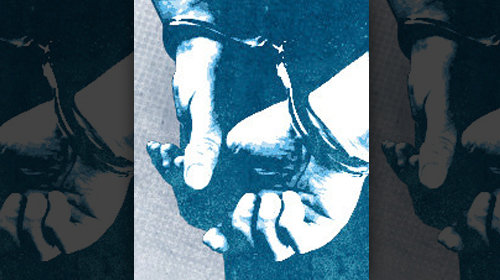
Today, the U.S. has the highest incarceration rate of any country in the world. With over 2.3 million men and women living behind bars, our imprisonment rate is the highest itÔÇÖs ever been in U.S. history. And yet, our criminal justice system has failed on every count: public safety, fairness and cost-effectiveness. Across the country, the criminal justice reform conversation is heating up. Each week, we feature our some of the most exciting and relevant news in overincarceration discourse that weÔÇÖve spotted from the previous week. Check back weekly for our top picks.
Previous posts have surveyed the many reform bills in play across the states. This week, weÔÇÖll take a more detailed look at a recently passed reform bill, West VirginiaÔÇÖs . The bill, which was passed by both legislative chambers, grew out of the made by a task force of public officials that worked with the Council of State Governments last fall to address the stateÔÇÖs prison and jail overcrowding problem.
The stateÔÇÖs jails and prisons have been overcrowded for well over a decade, made worse by the stateÔÇÖs growing prison population. Basically, state prisoners are being held in county and regional jails because the prisons are full. But jails, which are designed to hold people awaiting trial or serving short sentences, offer a much more limited range of rehabilitative programs than prisons do. In the late 1990s, a state prisoner serving time in a regional jail , where he would have access to more programming and services. The State Supreme Court ruled in his favor, and has on the executive and legislative branches to rectify the situation.
Despite a number of studies and recommendations in recent years, no action was taken to address the problem. Last year, in anticipation of this most recent study. The bill, SB 371, would allow judges to decide if , increases post-release supervision, could reduce revocations for parole and probation violations, and may divert some defendants to substance abuse treatment rather than prison.
The bill is a step in the right direction, but proponents expect the bill to merely stop the overcrowding problem from worsening, rather than solving the overcrowding problem that already exists. The Associate Press that ÔÇ£the bill is expected to halt prison growth rates but not reduce current populations in the state's critically overcrowded prisons and jails.ÔÇØ
Here are some other interesting items from the past week:
- The new Senate immigration bill will have implications for the federal prison population. In the (which, if passed, will almost certainly not pass unaltered), additional funds are provided to prosecute and imprison people who cross the border illegally, and . Incarcerating more immigrants, for longer, will add to the growing federal prison population.
- A group of criminal justice researchers and reform advocates, including the └¤░─├┼┐¬¢▒¢ß╣¹ÔÇÖs Vanita Gupta and Kara Dansky, released a paper this week proposing a revitalized model for justice reinvestmentÔÇöthe strategy of reducing prison populations through policy reform and using the cost savings to invest in high-incarceration communities to make them safer, stronger, and more equitable.
- A new report from Lumosity and the Drug Policy Alliance contains some interesting findings about pretrial detention in New Jersey. Researchers examined county corrections data from 19 New Jersey counties and found that, of the stateÔÇÖs 15,000-person jail population, nearly 40 percent are incarcerated solely because they cannot afford bail. Additionally, prisoners who had been indicted but had not yet had a trial had been in custody on average 314 days. You can find the full report .
- VermontÔÇÖs House of Representatives to decriminalize possession of up to an ounce of marijuana. Meanwhile, New HampshireÔÇÖs House that had already passed the state senate.
Learn more about overincarceration and other civil liberty issues: Sign up for breaking news alerts, , and .
